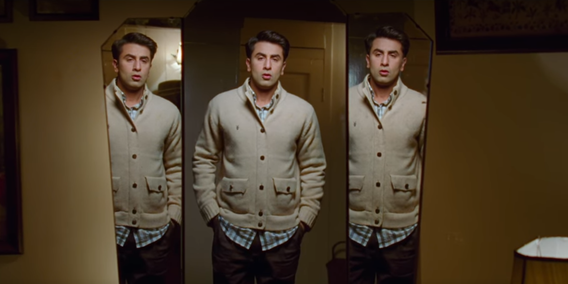When Did Looking After Myself Become Harder Than Looking After Everyone Else?
Recently, I caught myself on autopilot—looking after other people's feelings, thoughts, needs, and wants — during one of the most painful times in my life. I was processing a loss that's still too fresh to fully come to terms with, one whose depths I'm still discovering. After laying my pet to rest, I could feel a shift within me. Something was shutting down—the grief, the anxiety, the exhaustion all settling into my body alongside a blank, thoughtless mental state. My dog was the best. Words can't explain how amazing he was. He was a reminder that taking care of yourself is simple. After he passed, I knew I wanted space to just allow everything to flow, but there was this resistance—I had to keep showing up to care for others.
The Autopilot Takes Over
Answering a million calls after people heard about it. Comforting people over calls and text. Placating people's need to comfort me when I wasn't even aware of the comfort I needed. I slipped into a space where I went on autopilot—narrating stories, saying what they needed to hear, doing things they needed me to do. After answering too many calls, I found myself repeating: "Oh, and it must have been really hard to hear about his passing. Yes, it's a painful loss." Repeating the same concise story of what happened and what we did—the highlights, the lowlights. Comforting them, saying, "Yes, he's in a better place. Yes, he definitely thought of you in his last moments." I even went into reincarnation conversations because that's what someone else needed to hear. If I try to recall what I spoke to anyone about, it was the same loopy, empty conversation. It's safe to say I felt more burdened than I was when I only had to carry my own very painful emotions. But I kept doing this little song and dance on autopilot until…there was a slow churn in my stomach. My mind was blanking, exhaustion became my new persona, being snappy became a new way of interacting, and I started giving myself the ick.
The Crash
The disjointedness of what I was pretending versus what I really was became strong enough to snap me out of this weird space. I started feeling suffocated by all the resentment I'd let slide because someone else needs something more than I do—or so I told myself. It felt like a huge séance of all my emotions, but intensified. I was crashing, and if I didn't take charge, I was going down and about to burn all bystanders in a ten-mile radius. The internal chaos of it all was nothing short of being at Dadar station during rush hour, trying to get out of a fast train. Being in a sea of people, crushing and suffocating every part of your body (while you try to push through them to get out of a door that you imagine is in the direction of your efforts). You can barely see anything but the blurriness of people's arms and elbows (while you try not to flinch). It's barbaric but necessary, hoping your feet touch more solid footing than a moving metal floor. It all feels so fast, but at the same time, you can't even stop because you're in the thick of the crowd, and the only way out is through.
Why Does Caring for Others Feel Easier Than Caring for Myself?
The one thing I'm ever so aware of is my greed for avoidance. I love it, though I know it has never served me. If given a chance, I would choose not to feel anything or not confront anything at all. If you've been in a very crowded train trying to get off at a very crowded station, you know very well that everything blurs and you go into focus mode. The goal is to get out of the train, no matter what. Ignoring the number of feet that stamp on you, the elbows in your face, you push people a centimeter so you can move an inch. You have to dash through the door at any cost, even if you're terribly uncomfortable. That's what, in my experience, working towards addressing your needs amongst other people's needs feels like. I had to ignore what everyone expected and needed of me to finally address the pain I was feeling. Maybe I'll talk about loss and grief in another blog, but for now, something that stayed with me through this whole experience—and was the whole point of what I wanted to write—was this: how easy it was for me to autopilot when dealing with everyone else's needs and care, but when it came to mine, it was Dadar station (as previously mentioned).
What Was I Really Avoiding?
The other thing to note about me is that I'm surrounded by the most caring people out there. I have the most lovely friends and relationships. When I finally sat down with my suffocation, trying to process everything overwhelming—once I got off autopilot and sat to try and process everything—the kindness and comfort started sinking in. I remembered my partner telling me, "Do you think looking after yourself is an option?" Obviously, at the time, I didn't receive it well. But now, as I sit with it, this line seems more haunting. Why didn't I ask for time and space? Why did I feel like I had to be there for everyone but myself? Not only was I not looking after myself, but I wasn't even allowing others to do that for me. My misguided avoidance pushed me to believe that I can't be okay right now, so I should make sure everyone is okay around me (but not allow them to know I'm not okay). Complicated, am I right? Well, I am complex, much like any of you.
The Harder Truth
Caring for others is often easier because it provides instant gratification, allows avoidance of one's own complex problems, and offers a sense of purpose. However, caring for oneself can feel unfamiliar, lonely, daunting, or guilt-inducing. Additionally, the biggest cop-out for me is that I felt I was doing something without actually doing something. Because caring for others is an act of support, and caring for oneself is an act of execution. In your opinion, which one feels less burdensome? There could be a lot of reasons and influences as to why we jump into not looking after ourselves—it feels comfortable being an external person on someone else's issue, avoiding one's own feelings, lack of self-care models, and When Did Looking After Myself Become Harder Than Looking After Everyone Else? social conditioning. Exploring these in therapy might be really important to understanding your own patterns and learning what caring for yourself looks like. I know I'm still learning, and I will continue learning.
Ground Breaking — Mindfulness Cards
When looking after yourself feels like Dadar at rush hour, you need simple, doable anchors. These therapist-designed mindfulness prompts help you pause, breathe, and choose the next kind move—one card at a time.
Bring mindful pauses home







